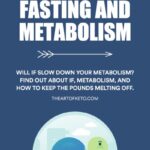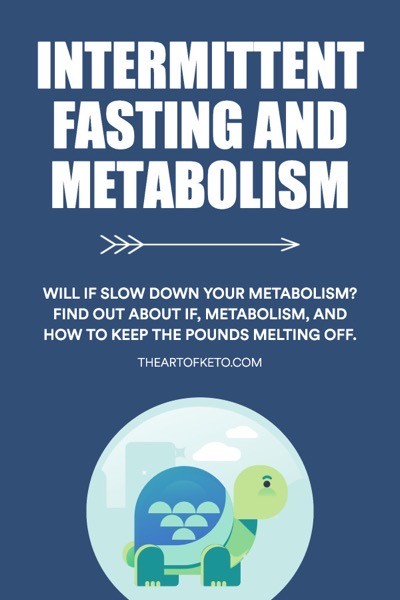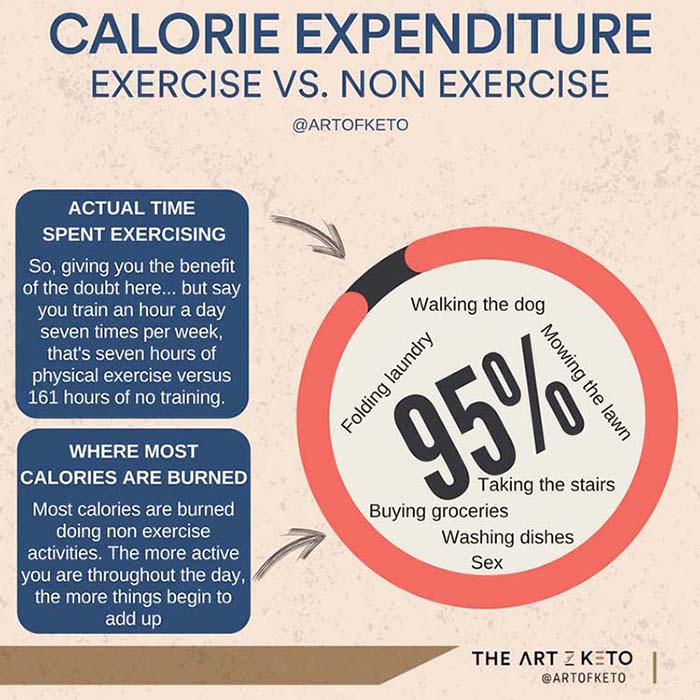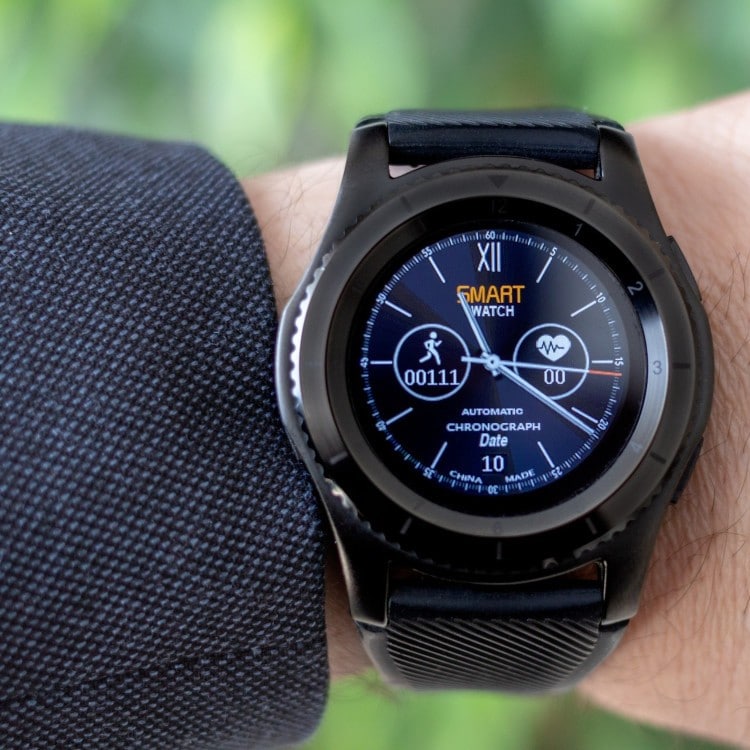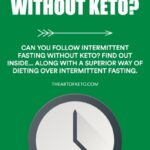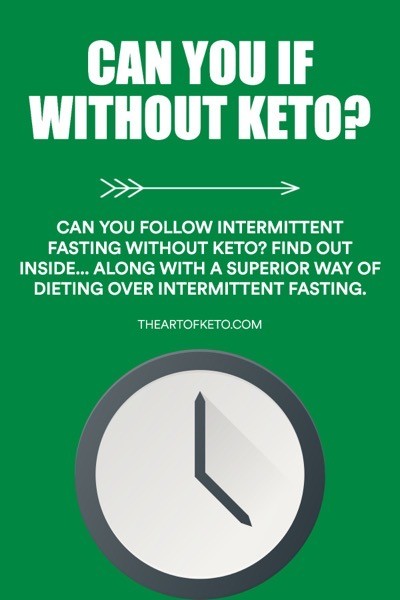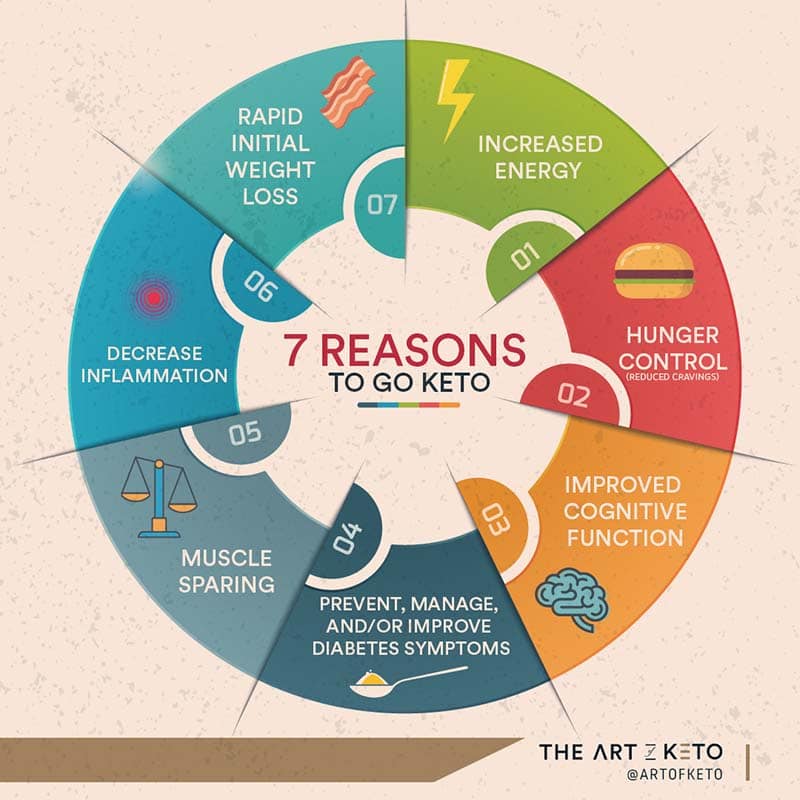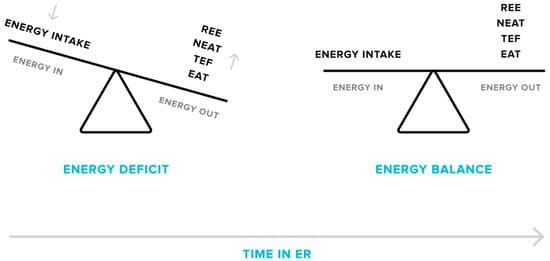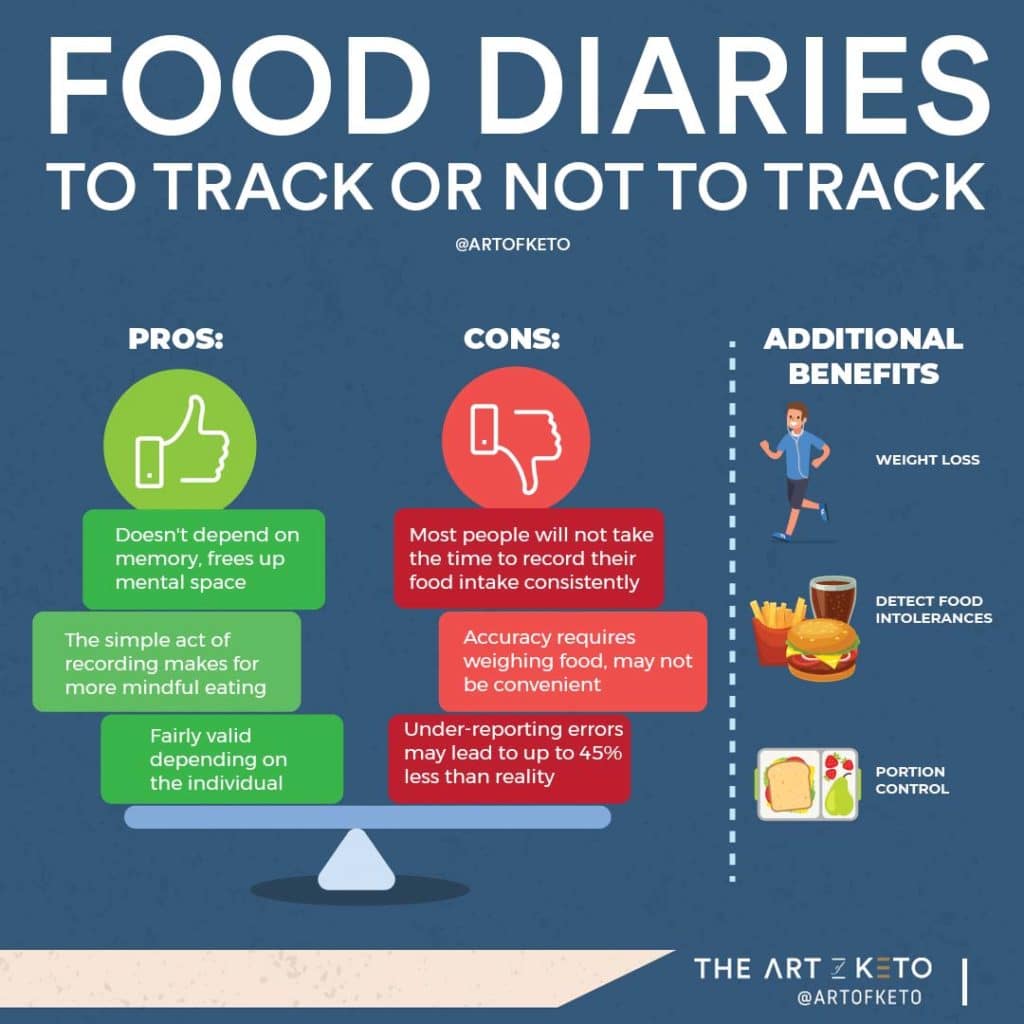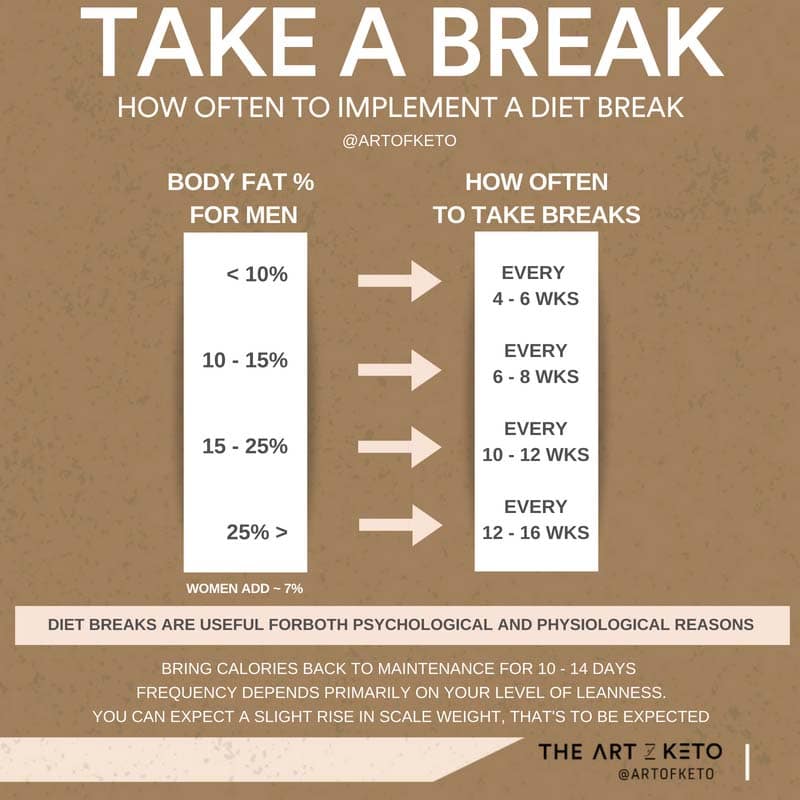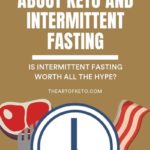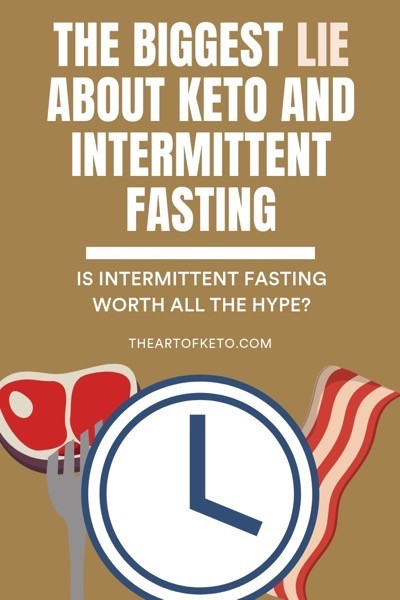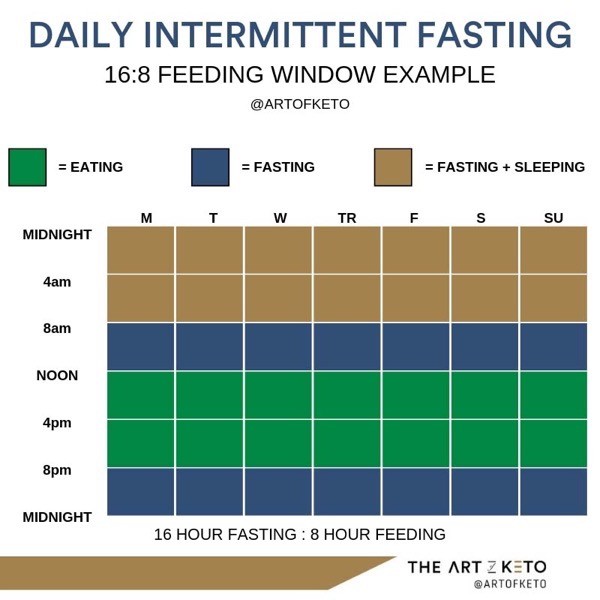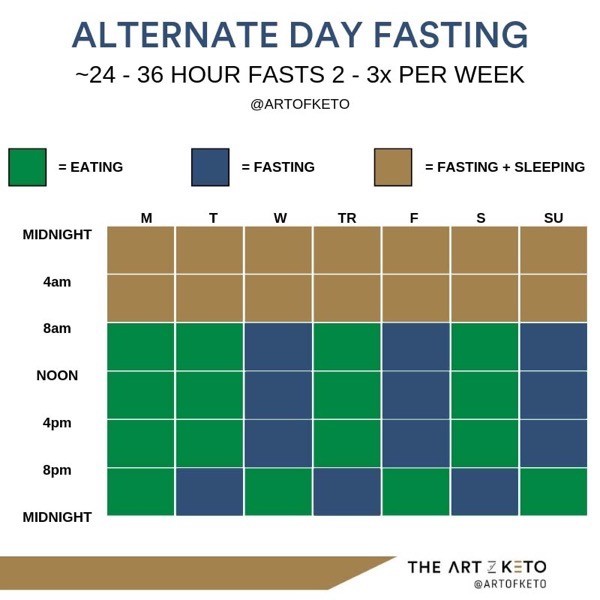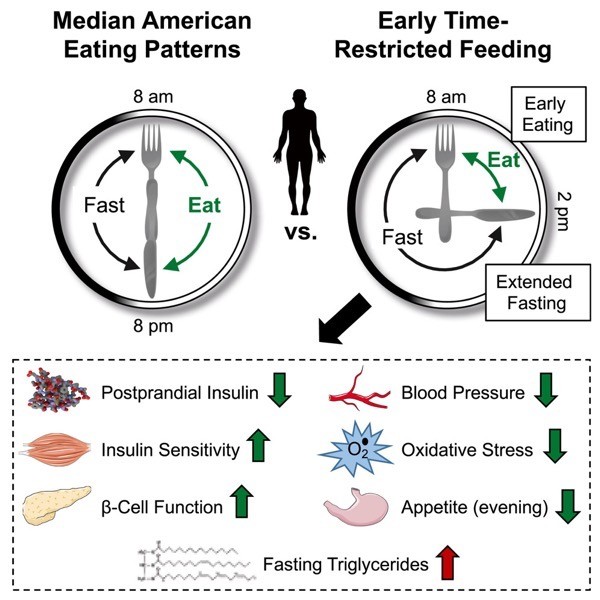With keto being all the rage these days, people are brought into the community and exposed to so many new foods, methodologies, and even meal structure.
I don't think you could be on keto for any reasonable amount of time without hearing about intermittent fasting (which is also catching wind by the mainstream). Inevitably, people start going deeper and deeper down the hole and ultimately find out about one meal a day OMAD.
For one reason or another, you may enjoy the structure of OMAD, and maybe you're looking to switch up your diet or implement some more carbohydrates, but can you?
Can I do OMAD without keto? You can do one meal a day OMAD style of eating using whatever diet or foods you wish to use. There is nothing about OMAD that would require you to be in ketosis and vice versa.
In this article, I'm going to dive a little deeper into what exactly OMAD is, what to eat, muscle and fat loss, IF vs. OMAD, and much more.
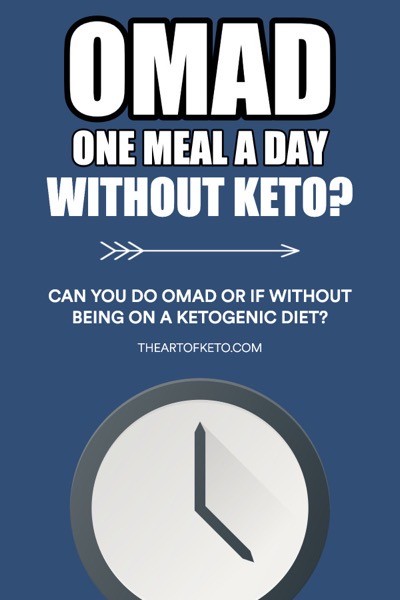
Can You Do OMAD Without Keto?
Intermittent fasting (IF) is an umbrella term in which OMAD falls under. Technically speaking, what most people refer to as intermittent fasting or one meal a day (OMAD) is regarded as time-restricted eating (TRE) in the scientific literature.
After some time on a ketogenic diet, you may have started to do some research on different ways to speed up your weight loss, which ultimately let you down the path of IF.
Once you go down the rabbit hole far enough, most people end up trying things like OMAD or multiple day fasts.
Naturally, there comes a time where you may want to transition off keto and wonder if you can still eat one meal a day without being on a ketogenic diet.
And you can, without a doubt.
One meal a day isn't reserved for implementation with a ketogenic diet only. You can manage to lose or maintain your weight loss using any form of diet or with additional carbohydrates.What Is OMAD
OMAD is short for one meal a day.
It's just another form of time-restricted eating that allows people to eat their total daily calories in one meal, versus spreading your meals throughout the day.
Think of your daily calories as a “budget” that you are given at the start of each day.You could make small purchases throughout the day, OR you could make one big purchase at the end of the day.
Why people choose to eat one meal a day
You may have found it easier or more convenient to implement intermittent fasting than eating smaller meals throughout the day, or maybe someone, somewhere, told you that intermittent fasting with the holy grail for fat loss.
After all, who likes to eat like a bird all day when you can eat like a king or queen at night?
And who doesn't want to expedite their results?
Although, whether you eat all your calories in one meal versus four meals will not make a considerable difference in terms of weight loss. 1
Outside of some possible health benefits or as a dietary adherence strategy, IF will not speed up weight loss to any significant extent. If you'd rather eat smaller meals throughout the day, this is your permission to do so.
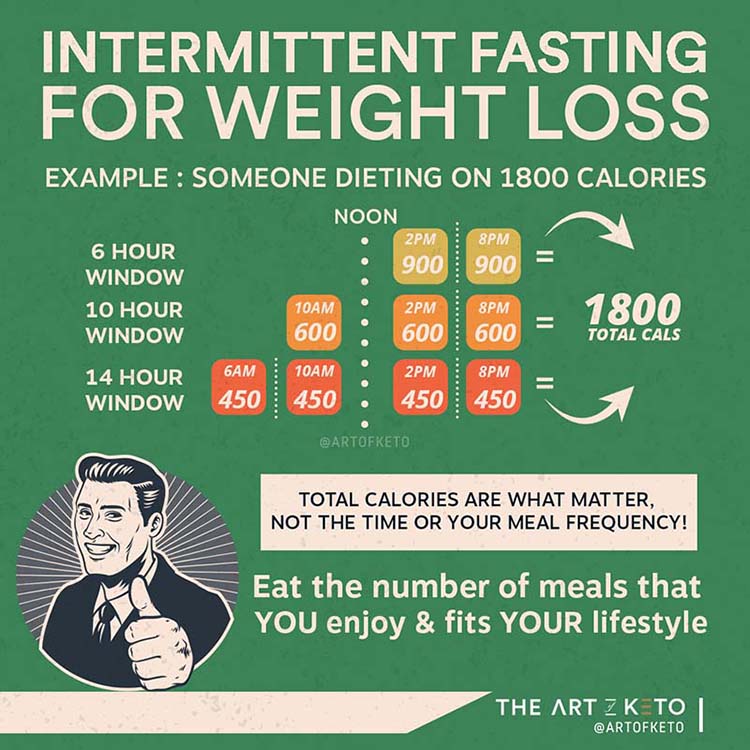
Besides, most people are busy during the daytime and have most of their social or family obligations that occur during the evening hours.
You may also generally be more hungry during the evening and/or hate going to bed on an empty stomach, at least that's what sealed it for me.
Therefore, there's nothing synonymous with OMAD and keto. OMAD merely is eating in a time-restricted fashion and eating all of your daily calories in one meal.Hence, “One Meal” A Day.
Can You Eat Anything On OMAD
At the end of the day, the most significant determining factor when it comes to weight loss will be your total calories.
Yes, despite what other “keto gurus” led you to believe. Insulin isn't as evil as people make it out to be.
While different macronutrients play a small role, total daily calories will have the most significant impact on whether you lose weight or not.
Therefore, while it still makes sense to eat whole, nutrient-dense foods, you can still lose weight if you're managing your total daily calories.
… and that's whether that involves you sticking to a low-carb ketogenic diet, or a more moderate carbohydrate diet.
However, for many individuals, they find the structure of a ketogenic diet easier to adhere to, feel better, and they're not constantly starving compared to other types of diets. 2 3 4
What To Eat On OMAD
So what should you eat if you want to OMAD without keto? Well, that depends on what you like to eat (within reason of course).
What I mean by that is, a diet shouldn't be based solely on foods that someone told you are “good” or “bad.”
Instead, try to implement foods you enjoy, within reason of course, while achieving your goals. This may mean making healthier substitutes or lower-calorie alternatives, but it's all for the greater good.
After all, how can you sustain a diet based on foods you don't enjoy?
Easy, you can't.
So instead of asking WHAT to eat, you first need to figure out how much to eat, then fit in what to eat based on that.
The only big suggestion I have here is to set your protein intake, then eat a mix of fat or carbohydrates based on your preference.
To learn more about setting up macros, you can visit the keto macro calculator.
Will You Lose Muscle On OMAD
When you lose weight, the goal shouldn't be ONLY to lose weight, but to lose fat.
Losing muscle can lead to a variety of negative consequences, but within the context of weight loss, it just means your metabolic rate will be slower.
There's also a higher chance you'll not have the physique you had imagined once you do lose the weight.
Therefore, one must be mindful and aim to preserve as much muscle tissue when dieting as possible.
Whether you lose muscle on OMAD is primarily determined on a few key factors, those being:
- How fast you're losing weight (0.5-1.5% body weight per week)
- How much protein you’re eating (~1g/lb) 5
- Proper stimulus (resistance training)
- How lean you are (the leaner you are, the more susceptible to muscle loss)
- Lifestyle factors (stress, sleep, etc.) 6
There's a little more wiggle room when it comes to intermittent fasting or OMAD and weight loss.
However, if muscle GAIN is a priority, you could gain muscle doing OMAD, but it wouldn't be the most optimal way to do so.
IF vs. OMAD
Whether you choose to do IF using an eating window, such as 16/8 (16 hours fasting, 8 hours feeding), or consolidate all of your calories into one meal is solely based on preference.
Neither the typical IF eating windows or OMAD is superior for weight loss.Therefore, if you enjoy eating 2 or 3 meals versus one big meal, the result will be the same.
Of course, results would only be the same if you ate the same amount of calories and protein spread throughout the 2 or 3 meals as you would the one meal.
OMAD would only be more beneficial versus the typical IF protocols for weight loss if it allowed you to sustain a more significant caloric deficit.
Is OMAD Healthy?
Current scientific literature suggests that intermittent fasting, which OMAD falls under, has beneficial effects on cardiovascular biomarkers, may decrease inflammation, and promote longevity.
However, it may be more beneficial if your one meal or eating window was during the earlier half of the day versus the evening time.
This method of shifting your eating window to the morning is referred to as “early time-restricted feeding (eTRF).
During a 5-week crossover trial, researchers using a feeding window from 7 am to 1 pm.
Compared to a control diet, the early time-restricted feeding window led to less insulin resistance, lower postprandial insulin response, and better beta-cell function. 7
In another stud, they compared a 9-hour feeding window from 8 am to 5 pm versos 12 pm to 9 pm, but no significant differences were found. The eTRF group had a slightly better fasting glucose. 8
If you're still wondering if OMAD is safe and healthy, you have the green light. Most of the benefits are health-related versus weight loss related.
Intermittent Fasting Without Keto… Can you lose weight intermittent fasting without keto?
While keto may make intermittent fasting or OMAD more natural to adhere to, you can do both IF or OMAD successfully without a keto diet.
A ketogenic diet may make it easier to adhere to a long fasting window due to its effect on satiety, but it isn't required.I should also note that IF or OMAD isn't required to lose weight either. If fasting for such long periods causes you more stress and you prefer to eat smaller meals throughout the day, I would suggest you do that.
The Takeaway
OMAD or one meal a day is merely a time-restricted feeding method often used by those who enjoy bigger meals over two to six smaller meals throughout the day.
While there is no inherent benefit for weight loss when it comes to intermittent fasting or one meal a day, this style of eating allows people who prefer it to adhere to their diets, and it fits with their lifestyle.
A ketogenic diet is not required to successfully implement an intermittent fasting or OMAD approach so long as calories are controlled.
Frequently Asked Questions
Does OMAD have to be low carb?
There's no hard and fast rule that dictates that OMAD has to be low carb. As you're taking one meal a day, it's best that your meal is high in carbs, proteins, and fats.
What is the difference between OMAD and OMAD Keto?
The difference between OMAD and OMAD keto is the carb restrictions. OMAD Keto has carb restrictions.
Can I have coffee on OMAD?
As the name suggests OMAD requires you to restrict your entire caloric intake to one meal a day. However, you can have any zero calorie beverage all throughout the day.

